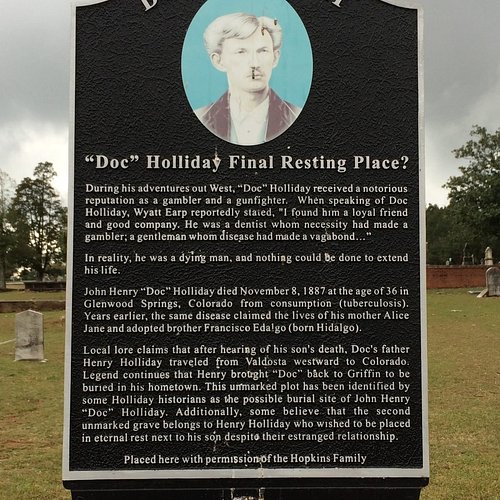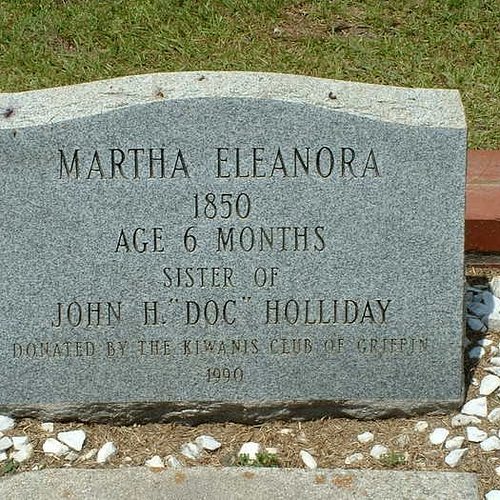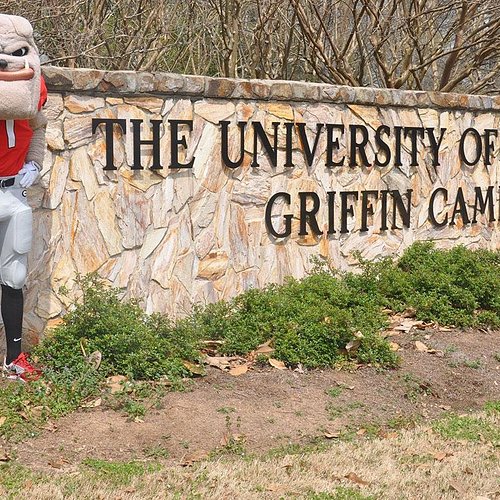The 10 Best Sights & Landmarks in Griffin, Georgia (GA)
Griffin is a city in and the county seat of Spalding County in the U.S. state of Georgia. It is part of the Atlanta metropolitan area. As of the 2010 census, the city had a population of 23,643.
Restaurants in Griffin
1. Doc Holliday's Grave in Griffin
Overall Ratings
5.0 based on 1 reviews
The general historical consensus has been that John Henry “Doc” Holliday was buried in Glenwood Springs, Colorado. The dentist-turned-gunslinger definitely died there (in 1887, from tuberculosis), and he was, at least initially, lowered into a grave. But there are a whole lot of people – his own descendants among them – who hold onto a different truth. He may be resting exactly where he was born –
2. Griffin Spalding Historical Society
Overall Ratings
5.0 based on 1 reviews
The Griffin Spalding Historical Society was founded in 1969 to present the stories of Griffins past, present and future in a variety of engaging and exciting ways through, programs, collections and research. Today the Historical Society owns and operates The Bailey-Tebault House located at 633 Meriwether Street in Griffin, which is available for rent to host your next event.
3. Camp Stephens Confederate Camp
Overall Ratings
5.0 based on 1 reviews
Confederate Infantry Camp Stephens was named for Alexander H. Stephens, vice-president of the Confederacy. Nearly all troops in Confederacy Army from Georgia were mobilized here and at Cavalry Camp Milner, located at the present Griffin Municipal Park. Spalding County provided nine companies, Infantry, Cavalry and Artillery, to the Confederate Army and a number of militia companies.
4. Doc Holliday Dental Office
Overall Ratings
5.0 based on 1 reviews
John Henry “Doc” Holliday returned to Griffin to finally claim his inheritance in 1872 at age 21. After reportedly practicing dentistry here, “Doc” later sold the property and was soon on his way to Texas.
5. Martha Eleanora Holliday's grave
Overall Ratings
5.0 based on 1 reviews
Baby Martha was the only biological sister to John H. "DOC" Holliday. She was older & died before he was born. She may have died of TB, like her brother & her Mom who had TB also. I came across her grave in search of Doc's & his Dad's graves (Doc's remains were believed to have been transfered from Glenwood Springs, CO back home to Griffin GA by his father, years after he died).
6. Doc Holliday Family Home
Overall Ratings
5.0 based on 1 reviews
John Henry "Doc" Holliday was born in Griffin on August 14, 1851. The Holiday family home were "Doc" Holliday spent his early years is believed to have been on this lot. This property was one of fourteen owned by the holiday family on this street.
7. The Georgia Experiment Station
The Georgia Experiment Station, one of the first State Agricultural Experiment Stations established in the country, was located in Spalding County, Georgia in 1888. The primary objective of its work program is to develop information which will aid in improving the living standards of the people in Georgia, particularly those interested in agriculture.
8. First Paving
Spalding was the first County between Chicago and Miami on the old Dixie Highway with a concrete highway running from county line to county line. A demonstration strip, completed Jan. 30, 1919, from the city limits of Griffin to and along the front of the Georgia Experiment Station, was the first paving outside a city on the route.
9. The original Courthouse
The original Courthouse was constructed in 1859 for $12,000 at 232 East Broad Street by the railroad tracks. Columbus Hughes was the architect and David Demarest the builder. One of 15 surviving antebellum Georgia courthouses, it is a relatively rare example of the Italianate style of architecture. The steeple and clock tower were removed in 1910 and it was converted to a jail in 1914. Following t
10. Sam Bailey Building
Named for Sam Wesley Bailey, a banker and landowner who came to Griffin after the Civil War, this school was built in 1870 as the Griffin Male Institute, a private school, at what is now East Poplar Street and 4th Street. Now a part of the Griffin Spalding County School System’s administrative complex. Gilman Drake was the builder of this two-story brick building with Italianate details.








